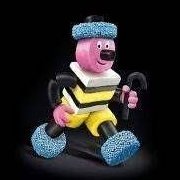Disgraced Cloning Scientist Flees To Thailand
-
Recently Browsing 0 members
- No registered users viewing this page.
-
Topics
-
-
Popular Contributors
-
-
Latest posts...
-
9
CoR requirements at Jomtien
I was always concerned my lie would be written on the COR effectively restricting what it could be used for. It still irritates me that I need to go get 'permission' from the headmaster at immigration to do many a basic thing..... twenty years on and still a puppet on a string! -
21
so, i got my first "clap" 🙄
You're in Pattaya, go to BuaKhao Clinic in Soi BuaKhao it's near Soi Pothole. This is primarily a VD clinic, they are specialists and familar with everything that's getting around town. You need to be tested for mixed infections and given the correct medication. Do not self medicate with OTC pills, you don't know what you are trying to treat. -
2
Crime Actress Gets 2 Months Suspended Sentence for Drink-Driving
Sweet Jesus, that's a very quick turnaround. The drink driving incident only occurred on Sunday (24 August). -
131
Canada Surrenders
Big change weather wise from TO to Edm. I'm seeing a condo exodus right now in TO, might be hard to sell I built last year and my developer said the other day my house would cost 20% more to build now. Glad I pulled the trigger when I did -
-
112
Immigration Thailand’s Immigration Bureau Revokes 10,000 Visas
This is from the Thai Immigration Act. So long as you didn't pay more than 2000 baht as at (3) for your Extension of stay as per regulations specified and 'discretion' exercised by the competent official in Section 35, it is legal.
-
-
Popular in The Pub













Recommended Posts
Create an account or sign in to comment
You need to be a member in order to leave a comment
Create an account
Sign up for a new account in our community. It's easy!
Register a new accountSign in
Already have an account? Sign in here.
Sign In Now